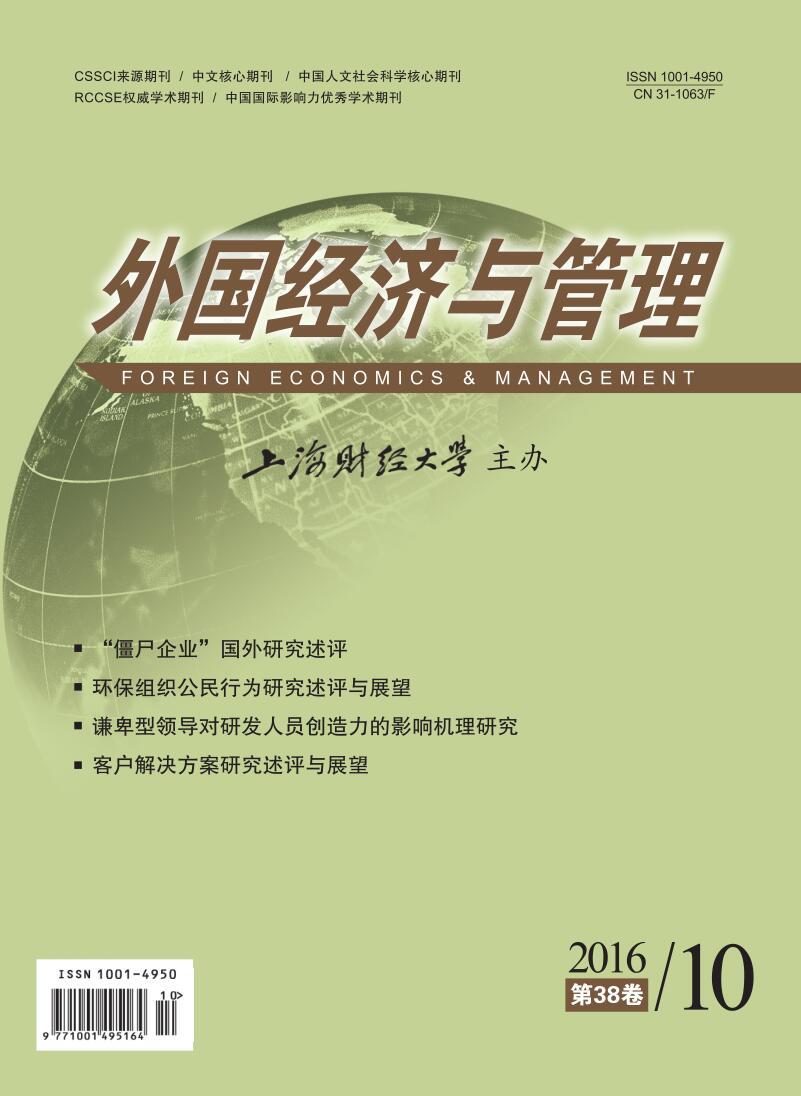迷信历来是消费情境中的普遍现象。随着信息时代的来临,缺乏足够辨别能力的消费者越来越容易被迷信信念所影响。近年来,消费者迷信也引起了学界的广泛关注。本文从消费者迷信的内涵、分类、影响因素和作用机制、结果变量以及应对策略几个方面批判性地梳理了国内外相关研究成果,并在此基础上指出了未来研究方向。
消费者迷信研究综述与展望
摘要
参考文献
7 Ariely D, Berns G S. Neuromarketing:The hope and hype of neuroimaging in business[J]. Nature Reviews Neuroscience, 2010, 11(4):284-292. DOI:10.1038/nrn2795
8 Au E W M, Chiu C Y, Chaturvedi A, et al. Maintaining faith in agency under immutable constraints:Cognitive consequences of believing in negotiable fate[J]. International Journal of Psychology, 2011, 46(6):463-474. DOI:10.1080/00207594.2011.578138
9 Au E W M, Chiu C Y, Zhang Z X, et al. Negotiable fate:Social ecological foundation and psychological functions[J]. Journal of Cross-Cultural Psychology, 2012, 43(6):931-942. DOI:10.1177/0022022111421632
10 Block L, Kramer T. The effect of superstitious beliefs on performance expectations[J]. Journal of the Academy of Marketing Science, 2009, 37(2):161-169. DOI:10.1007/s11747-008-0116-y
11 Burrus J, Roese N J. Long ago it was meant to be:The interplay between time, construal, and fate beliefs[J]. Personality and Social Psychology Bulletin, 2006, 32(8):1050-1058. DOI:10.1177/0146167206288282
13 Chan H, Wan C L, Sin L Y M. The contrasting effects of culture on consumer tolerance:Interpersonal face and impersonal fate[J]. Journal of Consumer Research, 2009, 36(2):292-304. DOI:10.1086/597329
14 Chaturvedi A, Chiu C Y, Viswanathan M. Literacy, negotiable fate, and thinking style among low income women in India[J]. Journal of Cross-Cultural Psychology, 2009, 40(5):880-893. DOI:10.1177/0022022109339391
15 Darke P R, Freedman J L. The belief in good luck scale[J]. Journal of Research in Personality, 1997a, 31(4):486-511. DOI:10.1006/jrpe.1997.2197
16 Darke P R, Freedman J L. Lucky events and beliefs in luck:Paradoxical effects on confidence and risk-taking[J]. Personality and Social Psychology Bulletin, 1997b, 23(4):378-388. DOI:10.1177/0146167297234004
17 Gardyn R, Fetto J. Tempting fate[J]. American Demographics, 2000, 22(10):8-9.
18 Hamerman E J, Johar G V. Conditioned superstition:Desire for control and consumer brand preferences[J]. Journal of Consumer Research, 2013, 40(3):428-443. DOI:10.1086/670762
19 Hsee C K, Dubé J P, Zhang Y. The prominence effect in Shanghai apartment prices[J]. Journal of Marketing Research, 2008, 45(2):133-144. DOI:10.1509/jmkr.45.2.133
20 Jiang Y W, Cho A, Adaval R. The unique consequences of feeling lucky:Implications for consumer behavior[J]. Journal of Consumer Psychology, 2009, 19(2):171-184. DOI:10.1016/j.jcps.2009.02.010
21 Kim H, Kulow K, Kramer T. The interactive effect of beliefs in malleable fate and fateful predictions on choice[J]. Journal of Consumer Research, 2014, 40(6):1139-1148. DOI:10.1086/674196
22 Kramer T, Block L. Conscious and nonconscious components of superstitious beliefs in judgment and decision making[J]. Journal of Consumer Research, 2008, 34(6):783-793. DOI:10.1086/523288
23 Kramer T, Block L. Nonconscious effects of peculiar beliefs on consumer psychology and choice[J]. Journal of Consumer Psychology, 2011, 21(1):101-111. DOI:10.1016/j.jcps.2010.09.009
24 Malinowski B. Magic, science and religion and other essays[M]. Garden City, NY:Doubleday, 1948.
26 Ng T, Chong T, Du X. The value of superstitions[J]. Journal of Economic Psychology, 2010, 31(3):293-309. DOI:10.1016/j.joep.2009.12.002
28 Pepitone A, Saffiotti L. The selectivity of nonmaterial beliefs in interpreting life events[J]. European Journal of Social Psychology, 1997, 27(1):23-35. DOI:10.1002/(ISSN)1099-0992
29 Reczek R W, Haws K L, Summers C A. Lucky loyalty:The effect of consumer effort on predictions of randomly determined marketing outcomes[J]. Journal of Consumer Research, 2014, 41(4):1065-1077. DOI:10.1086/678052
30 Simmons L C, Schindler R M. Cultural superstitions and the price endings used in Chinese advertising[J]. Journal of International Marketing, 2003, 11(2):101-111. DOI:10.1509/jimk.11.2.101.20161
31 Smith R E. Effects of coping skills training on generalized self-efficacy and locus of control[J]. Journal of Personality and Social Psychology, 1989, 56(2):228-233. DOI:10.1037/0022-3514.56.2.228
32 Steele C M, Liu T J. Dissonance processes as self-affirmation[J]. Journal of Personality and Social Psychology, 1983, 45(1):5-19. DOI:10.1037/0022-3514.45.1.5
33 Steele C M, Spencer S J, Lynch M. Self-image resilience and dissonance:The role of affirmational resources[J]. Journal of Personality and Social Psychology, 1993, 64(6):885-896. DOI:10.1037/0022-3514.64.6.885
34 Taylor S E, Brown J D. Illusion and well-being:A social psychological perspective on mental health[J]. Psychological Bulletin, 1988, 103(2):193-210. DOI:10.1037/0033-2909.103.2.193
35 Wang Y J, Hernandez M D, Minor M S, et al. Superstitious beliefs in consumer evaluation of brand logos implications for corporate branding strategy[J]. European Journal of Marketing, 2012, 46(5):712-732. DOI:10.1108/03090561211212485
36 Whitson J A, Galinsky A D. Lacking control increases illusory pattern perception[J]. Science, 2008, 322(5898):115-117. DOI:10.1126/science.1159845
37 Wiseman R. The luck factor[M]. London, UK:Random House, 2003.
38 Wiseman R, Watt C. Measuring superstitious belief:Why lucky charms matter[J]. Personality and Individual Differences, 2004, 37(8):1533-1541. DOI:10.1016/j.paid.2004.02.009
39 Wohl M J A, Enzle M E. The effects of near wins and near losses on self-perceived personal luck and subsequent gambling behavior[J]. Journal of Experimental and Social Psychology, 2003, 39(2):184-191. DOI:10.1016/S0022-1031(02)00525-5
引用本文
郭昱琅, 张攀. 消费者迷信研究综述与展望[J]. 外国经济与管理, 2016, 38(10): 117–128.
导出参考文献,格式为:
上一篇:客户解决方案研究述评与展望





 7730
7730  10444
10444

